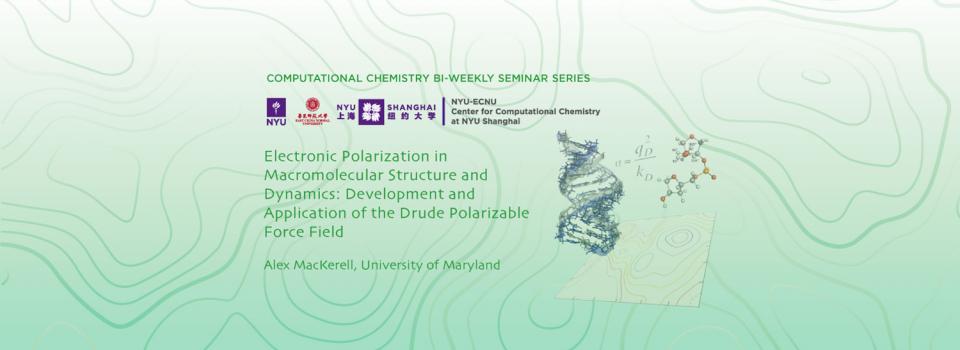
Abstract:
The inclusion of the explicit treatment of electronic polarizability in empirical force fields offers the potential to significantly improve the accuracy of molecular simulations of chemical, biological and pharmacological systems in condensed phases. Towards achieving this goal we have developed a polarizable force field based on the classical Drude oscillator model. The Drude force field encompasses proteins, nucleic acids, selected lipids, carbohydrates and a limited range of drug-like molecules allowing for simulation studies of heterogeneous systems. An advantage of the Drude model over other methods to model polarization is the inclusion of an explicit particle to model the electronic degrees of freedom allowing for steric contributions associated with electronic polarization to be modeled, a capability that has been used in the Drude Mg2+ ion and halogen parameters. The utility of the model over the additive CHARMM36 force field has been shown in the treatment of the cooperativity of helix formation of the (AAQAA)3 peptide and in the unfolding of Amyloid peptides, on base flipping in DNA and on the interactions of ions with DNA. An overview of the model will be presented along with ongoing developments and application of the force field.
Biography:
Alex MacKerell received an A.S. in Biology from Gloucester County College, a B.S. in Chemistry from the University of Hawaii and a Ph.D. in Biochemistry from Rutgers University. Subsequent training involved postdoctoral fellowships in the Department of Medical Biophysics, Karolinska Intitutet, Stockholm, Sweden in experimental and theoretical biophysics and in the Department of Chemistry, Harvard University in theoretical chemistry. MacKerell is currently the Grollman-Glick Professor of Pharmaceutical Sciences in the School of Pharmacy, University of Maryland, Baltimore and the Director of the University of Maryland Computer-Aided Drug Design Center. MacKerell is also Co-founder and Chief Scientific Officer of SilcsBio LLC. Research interests include the development of theoretical chemistry methods, with emphasis on empirical force fields, including the CHARMM additive and Drude polarizable force fields, structure-function studies of proteins, carbohydrates and nucleic acids, and drug design and development.
Bi-Weekly Seminar Series by the NYU-ECNU Center for Computational Chemistry at NYU Shanghai


